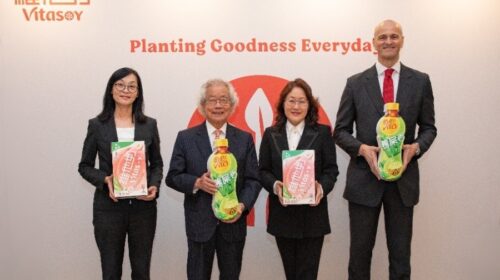Chabaidao cancels dividend, Nayuki swings to red as bubble tea sector boils over

China’s premium tea space has become rife with cutthroat competition, with 3,000 brands and up to 420,000 stores fighting for business at the end of last year
Key Takeaways:
- Chabaidao canceled its previously announced dividend, as management said it needs to keep the money for daily operations
- Nayuki said it fell into the red in the first half of this year due to a weak recovery in consumer demand
By Fai Pui
Imagine that a company in your portfolio announces a dividend and the stock reflects that expectation. Then, just days before the pay date, it suddenly announces it’s changed its mind and won’t pay the dividend after all. What could an investor feel but deep disappointment or even anger at such a seldom-seen reversal?
But that’s exactly what happened last week with recently listed Sichuan Baicha Baidao Industrial Co. Ltd. (2555.HK), also known as Chabaidao, operator of the ChaPanda chain of bubble tea stores.
Chabaidao made its trading debut on April 23 in Hong Kong after selling shares at HK$17.50. Despite its status as one of just a few listed players in China’s huge premium tea drink market, its stock move steadily downward after the IPO. To try and encourage investors, the company announced on June 3 it would pay a dividend of 0.28 yuan per share. That decision was approved almost unanimously at its annual shareholder meeting on June 25, and was factored into the stock price.
The amount was quite small and token in nature, meant as small consolation to shareholders who lost big money from the stock’s decline. But then, just three days before the dividend was set to be paid, Chabaidao announced on July 29 the board had changed its mind and decided to withdraw the dividend after “taking into consideration the recent changes in the external environment.”
Chabaidao’s shares fell more than 13% in the four trading days after the announcement to HK$7.15 by last Friday, representing a new post-IPO low.
The company attributed its change of heart to the need to preserve cash for its daily business operations. Ivan Chow, an independent analyst, pointed to the cutthroat competition in China’s premium tea market. He added the likelihood that such competition would continue for the foreseeable future probably led the company to decide to keep the money previously earmarked for a dividend in its financial war chest instead.
Intense competition is currently gripping China’s premium tea market, with major brands all jostling to cut prices. Some offerings from Nayuki Holdings Ltd. (2150.HK) and Heytea, considered two higher-end brands, have dropped below the 20 yuan ($2.80) mark, and last year both launched products costing only 9.9 yuan.
Nayuki also issued its own recent profit warning, say it swung into the red in the first half of this year, and anticipates it will report an adjusted net loss of between 420 million yuan to 490 million yuan, reversing a 70.2 million yuan in the year-ago period. The company said weak consumer demand pressured its store performance, and also cited provisioning for asset impairment likely to occur as it closes struggling stores.
According to third-party market data in Chabaidao’s IPO prospectus, China was home to 3,000 brands of freshly made tea beverages operating a whopping 420,000 stores at the end of last year. China’s top 10 shopping areas hosted a mind-bending 50 such tea beverage shops per square kilometer. And each of the country’s 10 largest shopping malls was host to an average of 10 such shops.
Premium tea beverage stores have become so widespread that there’s always one nearby in most commercial areas, even though their drink selection is quite similar, with milk, fruit and lemon teas the most common. That means price is one of the few places where brands can differentiate themselves. The market is generally grouped into three main segments based on price. Nayuki and Heytea focus on the middle and high-end of that market, Chabaidao, Goodme and Auntea Jenny occupy the middle, and Mixue falls at the low-end.
The “10 yuan” era
Nayuki’s citation of the lack of strong recovery in consumer demand is a striking reality that every brand is having to deal with these days. As cautious consumers become less willing to splash out on premium drinks, Nayuki and Heytea have introduced beverages priced at only 9.9 yuan, and cut prices for products originally costing 30 yuan to 40 yuan to below 30 yuan. The two high-end brands have also abandoned their self-operated-store-only model and started to embrace franchising, hoping to defend their market share through strength in numbers.
Mid-market brands can’t afford to sit still either. Apart from launching drinks below the 10 yuan threshold, many have cut prices for their traditional products to less than 20 yuan. They’re doing that as average spending per customer at Chabaidao, Goodme and Auntea Jenny has dropped to about 15 yuan, while Nayuki and Heytea aren’t far behind at about 18 yuan, according to industry data.
Mixue, which applied earlier this year for a Hong Kong IPO, has expanded rapidly using a franchise model and endeared itself to consumers with its low prices. According to its IPO prospectus, most of its tea drinks are priced below 10 yuan and it is now benefiting from an ongoing “consumption downgrade” by Chinese consumers looking for better value for their money.
“We have not seen significant improvement in the wealth of Chinese households. Deflation is the biggest potential concern,” analyst Chow said. “As raw material prices remain high, brands with economies of scale and lots of cash will continue engaging in the price wars and competition will only get more intense.”
Share of companies like Chabaidao and Nayuki are good indicators of the state of the industry, reflecting bearish investor sentiment on the group. Just four months after its IPO, Chabaidao’s stock is already 60% below its IPO price. Nayuki’s shares have also fallen dramatically this year, down as much as 40% at one point.
Chow said Chabaidao’s abrupt cancelation of its dividend might undermine its credibility in the eyes of investors, who will be less likely to believe what management says about future dividend plans. That could also affect the company’s future ability to raise new funds through equity and debt financing. “The Chinese tea beverage market has moved from explosive growth to a new phase of relentless competition,” Chow said. “My advice is not to buy any such stocks before we see clear signs of market improvement.”
To subscribe to Bamboo Works free weekly newsletter, click here






